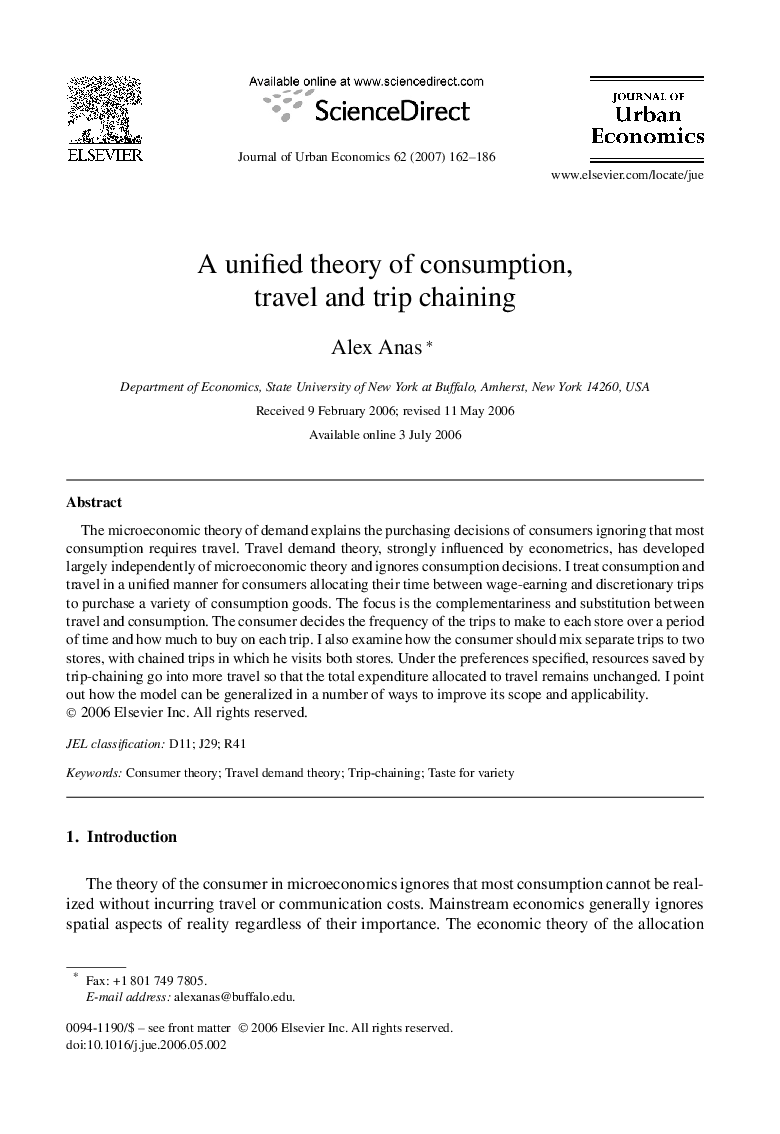| Article ID | Journal | Published Year | Pages | File Type |
|---|---|---|---|---|
| 970835 | Journal of Urban Economics | 2007 | 25 Pages |
The microeconomic theory of demand explains the purchasing decisions of consumers ignoring that most consumption requires travel. Travel demand theory, strongly influenced by econometrics, has developed largely independently of microeconomic theory and ignores consumption decisions. I treat consumption and travel in a unified manner for consumers allocating their time between wage-earning and discretionary trips to purchase a variety of consumption goods. The focus is the complementariness and substitution between travel and consumption. The consumer decides the frequency of the trips to make to each store over a period of time and how much to buy on each trip. I also examine how the consumer should mix separate trips to two stores, with chained trips in which he visits both stores. Under the preferences specified, resources saved by trip-chaining go into more travel so that the total expenditure allocated to travel remains unchanged. I point out how the model can be generalized in a number of ways to improve its scope and applicability.
